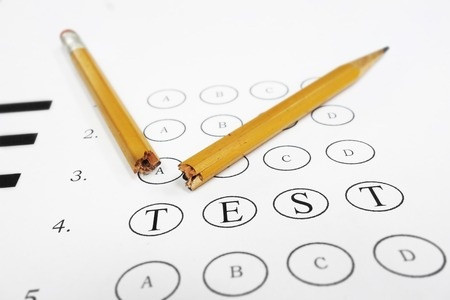官方真题Official2托福听力Conversation1文本+真题+答案解析
- 2018年01月09日14:06 来源:小站整理
- 参与(0) 阅读(38328)
现在大家在进行托福备考时官方真题Official托福模考软件相信是大家用的最多的工具了,对于托福成绩的提升是非常有帮助的。托福听力可以说是整个托福考试当中比较重要的一个部分,如何利用现有资料官方真题Official模考软件来提升大家的托福成绩呢?今天小编在这里整理了官方真题Official2托福听力Conversation1文本+题目+答案解析来分享给大家,希望对大家托福听力备考有帮助。
官方真题Official2托福听力Conversation1原文文本
Discussing Report With Professor
Student: Uh, excuse me, Professor Thompson. I know your office hours are tomorrow, but I was wondering if you had a few minutes free now to discuss something.
Professor: Sure, John. What did you want to talk about?
Student: Well, I have some quick questions about how to write up the research project I did this semester—about climate variations.
Professor: Oh, yes, you were looking at variations in climate in the Grant City area, right? How far along have you gotten?
Student: I’ve got all my data, so I’m starting to summarize it now, preparing graphs and stuff. But I’m just...I’m looking at it and I’m afraid that it’s not enough, but I’m not sure what else to put in the report.
Professor: I hear the same thing from every student. You know, you have to remember now that you’re the expert on what you’ve done. So, think about what you’d need to include if you were going to explain your research project to someone with general or casual knowledge about the subject, like ...like your parents. That’s usually my rule of thumb: would my parents understand this?
Student: OK, I get it.
Professor: I hope you can recognize by my saying that how much you do know about the subject.
Student: Right, I understand, I was wondering if I should also include the notes from the research journal you suggested I keep.
Professor: Yes, definitely, you should use them to indicate what your evolution in thought was through time. So, just set up, you know, what was the purpose of what you were doing—to try to understand the climate variability of this area—and what you did, and what your approach was.
Student: OK, so, for example, I studied meteorological records. I looked at climate charts. I used different methods for analyzing the data, like certain statistical tests, and then I discuss the results. Is that what you mean?
Professor: Yes, that’s right. You should include all of that. The statistical tests are especially important. And also be sure you include a good reference section where all your published and unpublished data came from, ‘cause you have a lot of unpublished climate data.
Student: Hmm ...something just came into my mind and went out the other side.
Professor: That happens to me a lot, so I’ve come up with a pretty good memory management tool. I carry a little pad with me all the time and jot down questions or ideas that I don’t want to forget. For example, I went to the doctor with my daughter and her baby son last week and we knew we wouldn’t remember everything we wanted to ask the doctor, so we actually made a list of five things we wanted answers to.
Student: A notepad is a good idea. Since I’m so busy now at the end of the semester, I’m getting pretty forgetful these days. OK, I just remembered what I was trying to say before.
Professor: Good, I was hoping you’d come up with it.
Student: Yes, it ends up that I have data on more than just the immediate Grant City area, so I also included some regional data in the report. With everything else it should be a pretty good indicator of the climate in this part of the state.
Professor: Sounds good. I’d be happy to look over a draft version before you hand in the final copy, if you wish.
Student: Great, I’ll plan to get you a draft of the paper by next Friday. Thanks very much, well, see ya.
Professor: OK.
查看官方真题Official2托福听力Conversation1的题目请进入下一页→→→






























